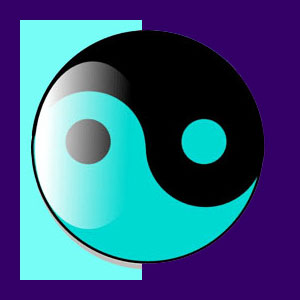
Naturopathy for back pain provides various types of care that all have one thing in common: They are natural and designed to create general health, as well as specific benefits for pain. Naturopathy remains one of the most controversial of all healthcare specialties, including its educational system, licensure and regulation. Seeking naturopathic care is typically discouraged by traditional medical practitioners, which is not necessarily a bad thing…
So what is naturopathy and how does it treat back pain? Are there practices which are better for back pain and practices that should be avoided? How do you know if your naturopathic physician is a “real doctor” or a complete quack? These are all very important questions that must be answered by any patient who has even the most remote interest in naturopathic care.
This discussion focuses on naturopathic medicine and its specific use for back pain. We will provide a pros and cons evaluation of the system and profile some of its most common therapeutic practices for back pain sufferers.
Naturopathy for Back Pain Practices
Naturopathy is a very diverse system of healthcare and individual practitioners might use very different methods from care provider to care provider. In theory, naturopaths are against accepted medical practices, such as the use of drugs and surgery, but in some areas of the world, naturopathic doctors are licensed to prescribe and perform these care methods.
Basically, the therapies embraced and utilized by any given care provider can range greatly, including any or all of the following therapies: herbal treatment, massage, chiropractic, Rolfing, Alexander Technic, acupuncture and acupressure, Traditional Chinese Medicine, physical and exercise therapy, psychological therapy and posture therapy. Most doctors and patients would agree that all of these practices have potential to benefit back pain sufferers and are therefore mainstays of complementary medicine or dedicated and accepted scientific practices unto themselves. However, naturopathic medical providers do not stop at using these accepted and universally beneficial practices. They also include less often seen and much more controversial healthcare practices including chelation therapy, colonic therapy, color therapy, ozone therapy, apitherapy, Ayurveda, magnetic therapy, prolotherapy, homeopathy and various other measures.
As noted before, in some areas where naturopathic physicians have more freedom under the law, some care providers might also utilize accepted medical prescription drugs and even perform basic surgery as part of their practice.
Naturopathy Controversy
Naturopathy is extremely debated in healthcare circles and in regulatory law, as well. The system of education and credentialing has been widely criticized from without and within naturopathic circles. In fact, some noted naturopaths have turned against the profession and outed themselves and colleagues as quacks who are simply unqualified to provide care for the majority of complaints brought to them. This history does not exactly inspire confidence in the naturopath professional.
Since naturopathic medical providers utilize such wide-ranging practices, it is difficult to condemn them or endorse them, since some practices might be both effective and safe, while others might be laughably illogical and dangerous. You just do not know what type of care might be involved when discussing any particular naturopath or patient… This leaves a very bad taste in our mouths when it comes to providing an opinion of whether or not naturopathy is a legitimate treatment for back pain.
Naturopathy for Back Pain Editorial Opinion
We definitely endorse some practices widely utilized by naturopaths for both pain relief and for general health optimization. The ideas of exercise, natural treatments and integration of mind and body towards total wellness are all sound and recommended. Some naturopathic practices are true complementary medical specialties offered in almost every modern hospital in the world now, such as acupuncture, massage, physical therapy and psychological therapy. However, with the educational system being what it is, the quality of these services, when offered by a naturopath, is not clear compared to dedicated providers who have certifications in each separate healing science.
Additionally, being that some naturopaths can and do utilize many methods of care that have long been considered quackery, and others which are widely known to be dangerous (and disgusting), it is once again difficult to recommend seeing one if you are looking for a back pain specialist. We would recommend using a neurologist as a primary care provider and investigating complementary and alternative medicine, including naturopathy, as a means of avoiding the dangers of medical therapy, but not as a way to get yourself out of the frying pan and into the fire…




